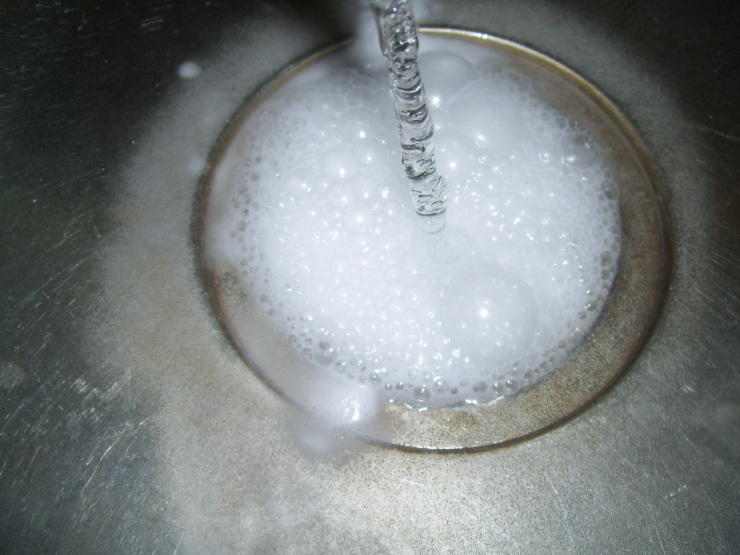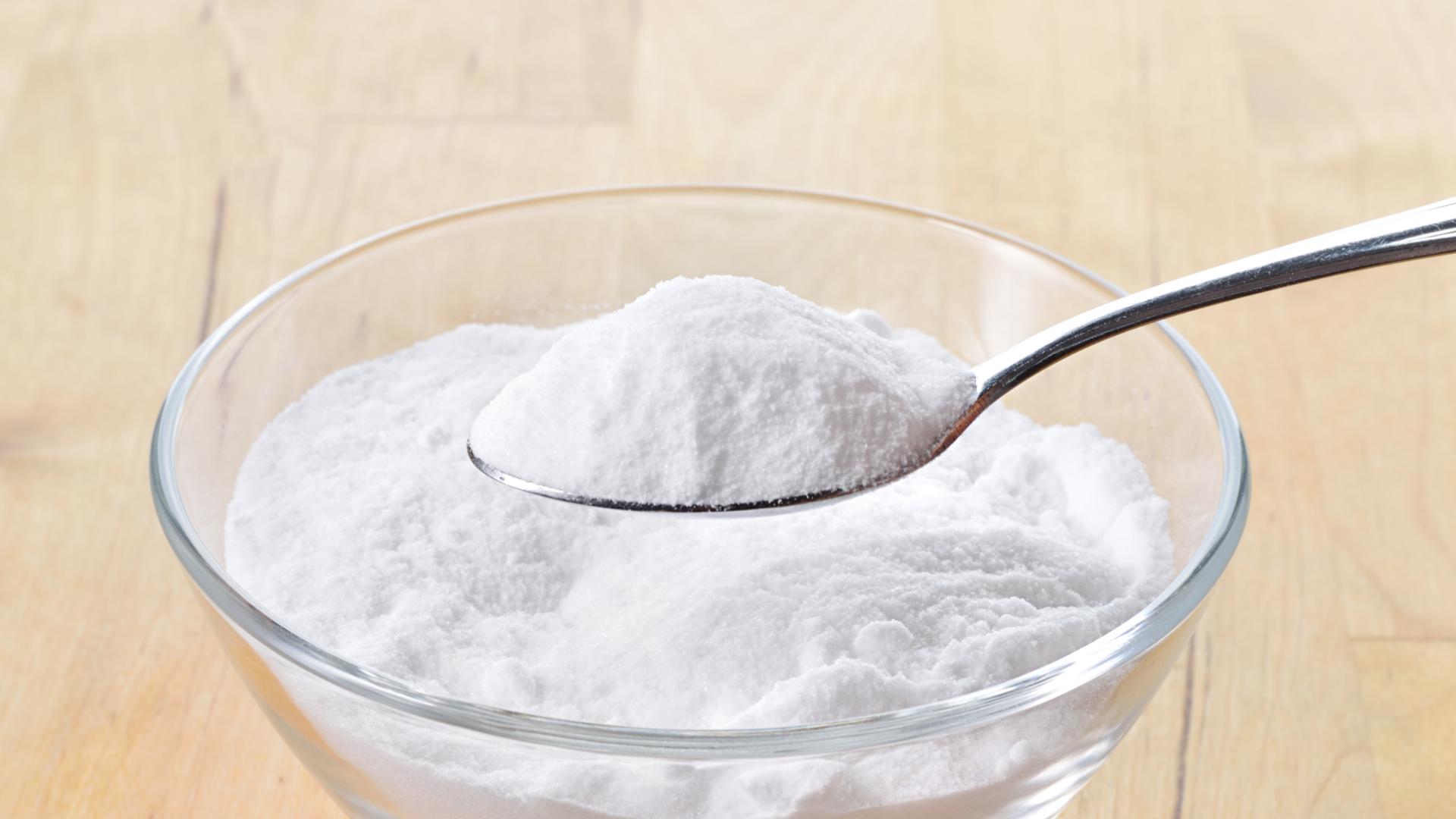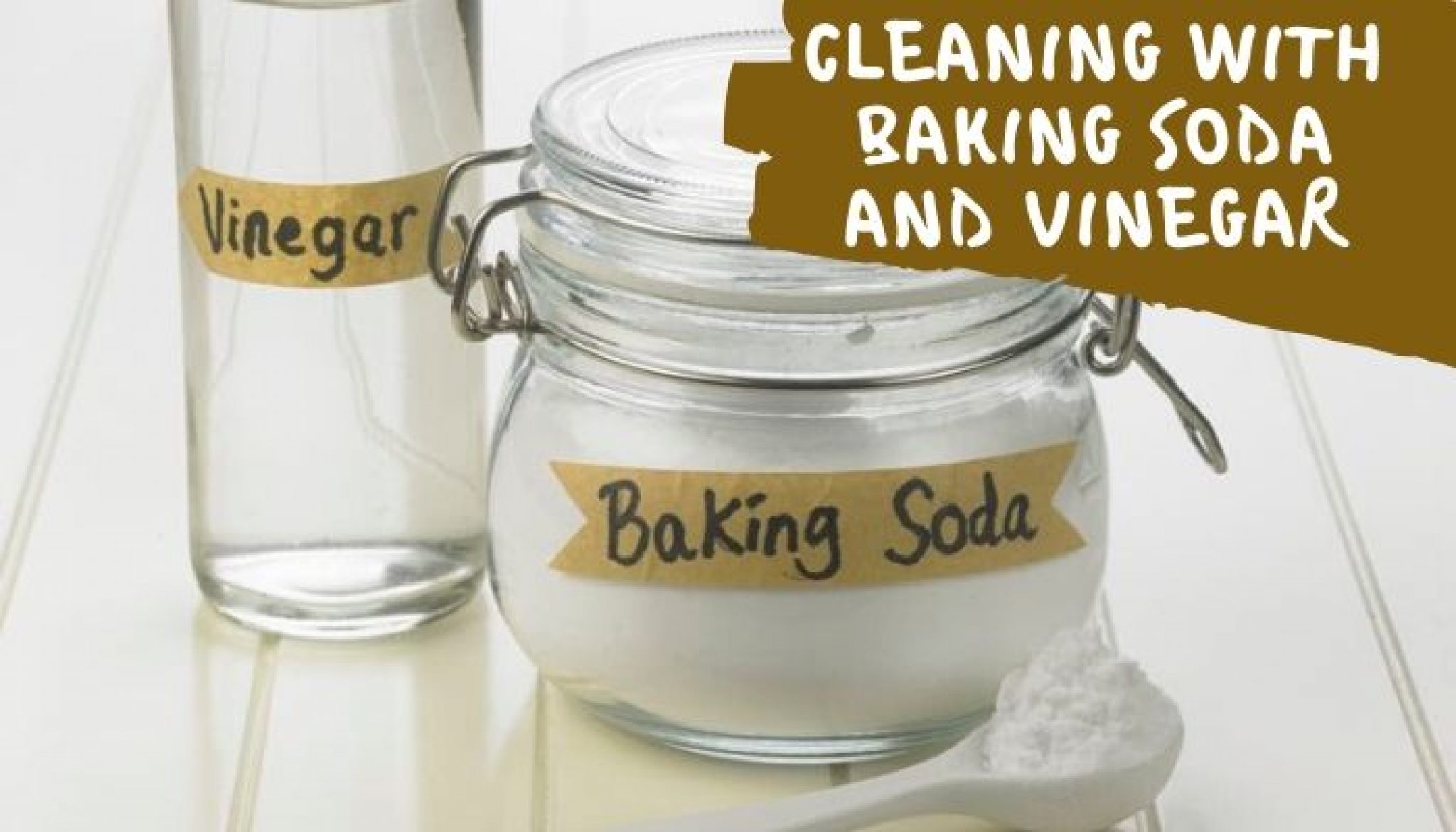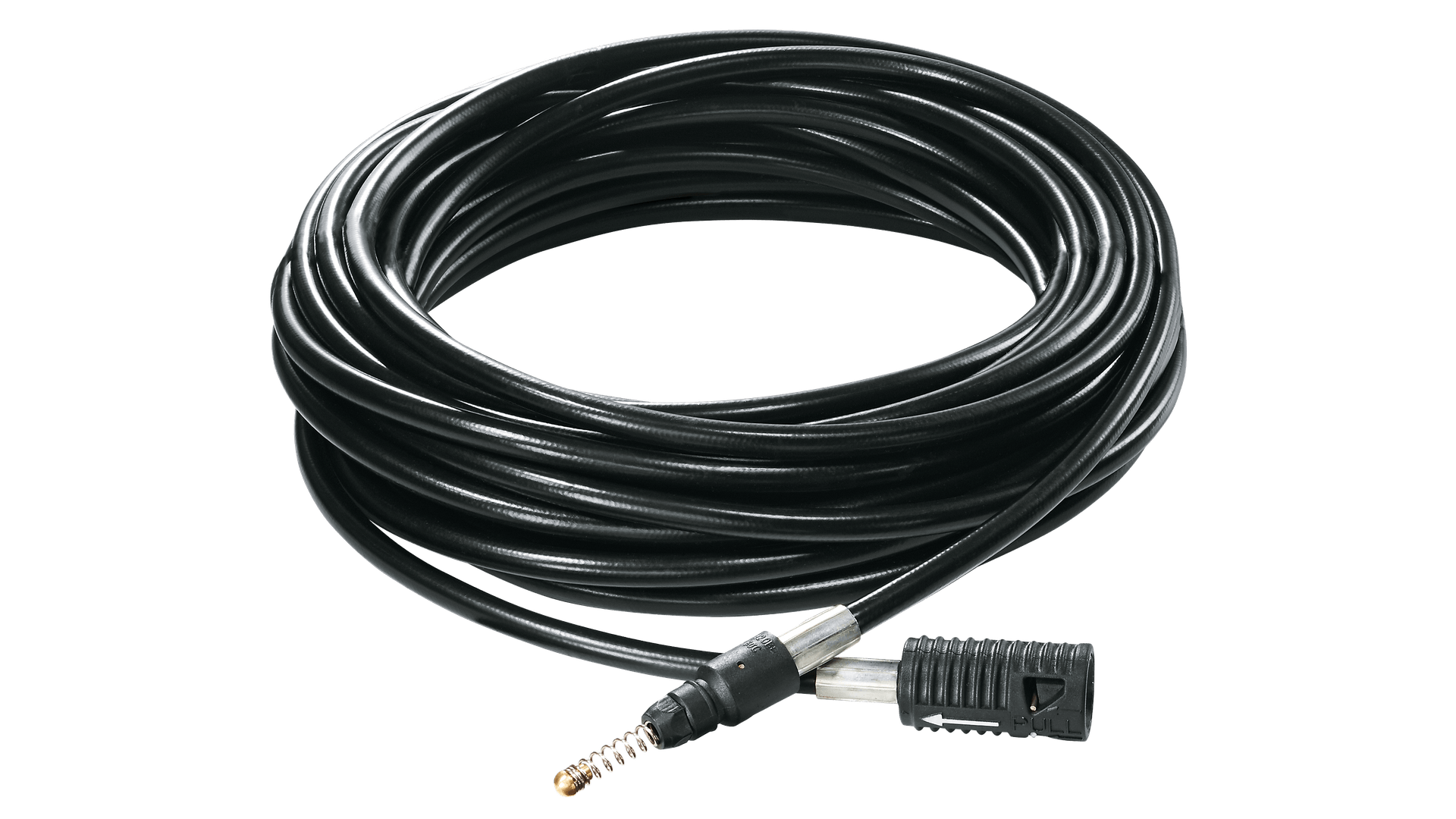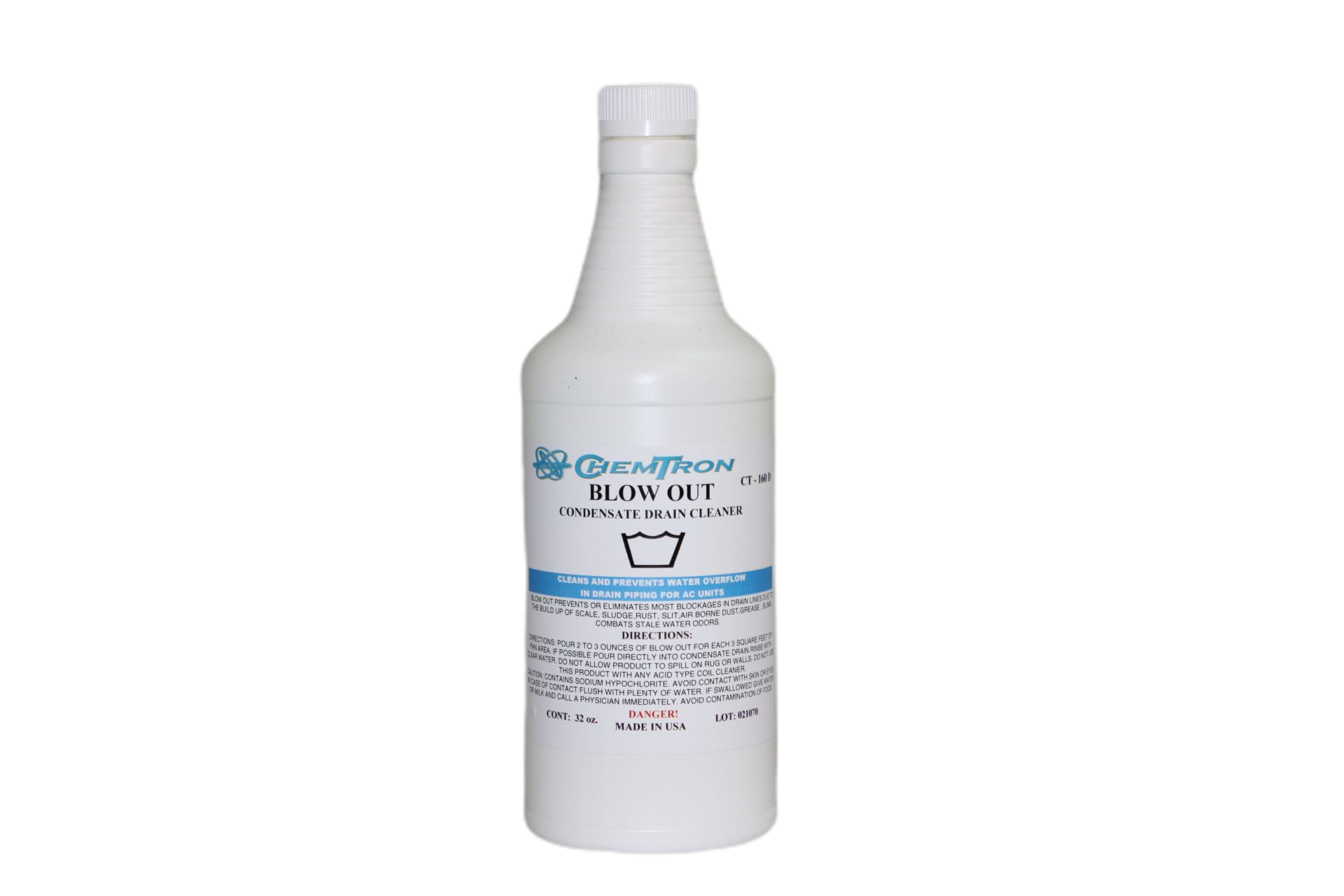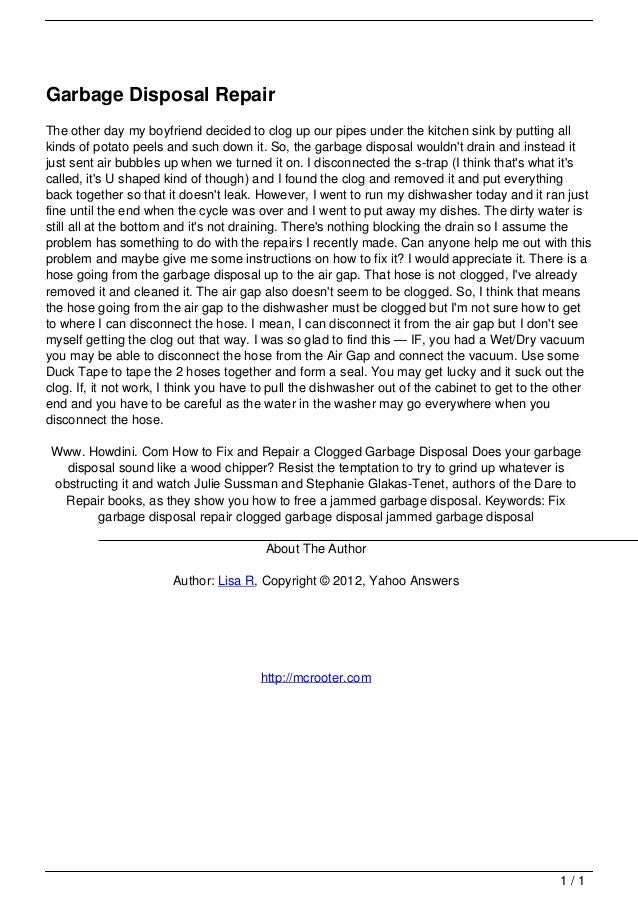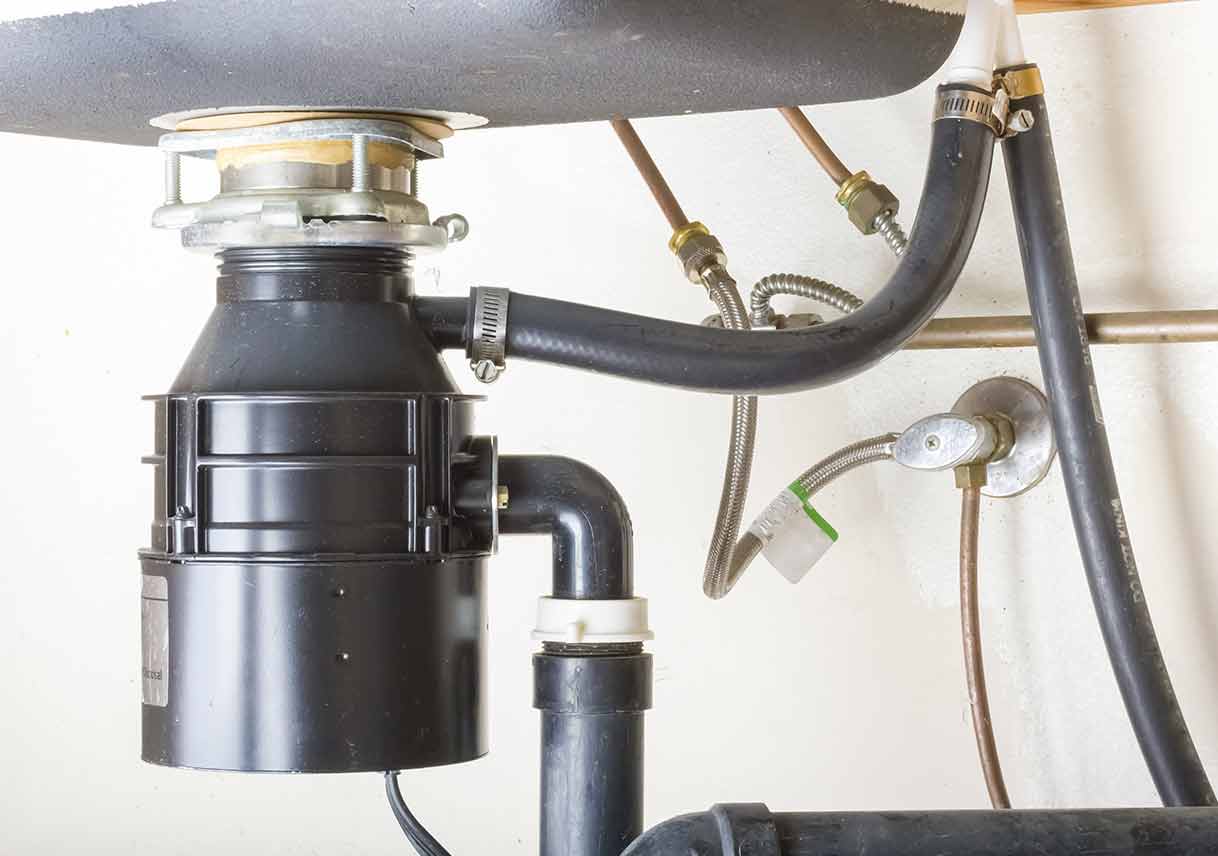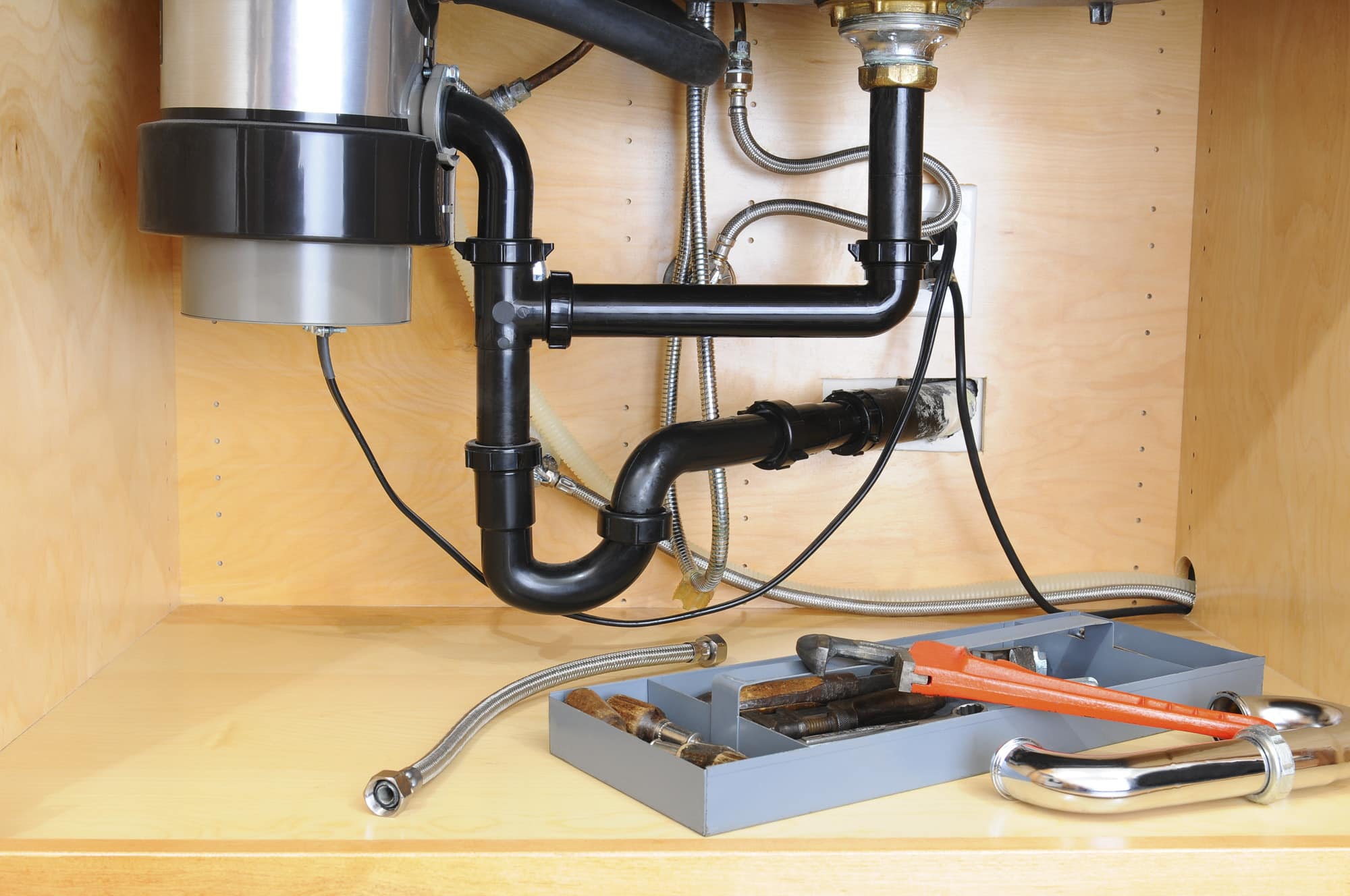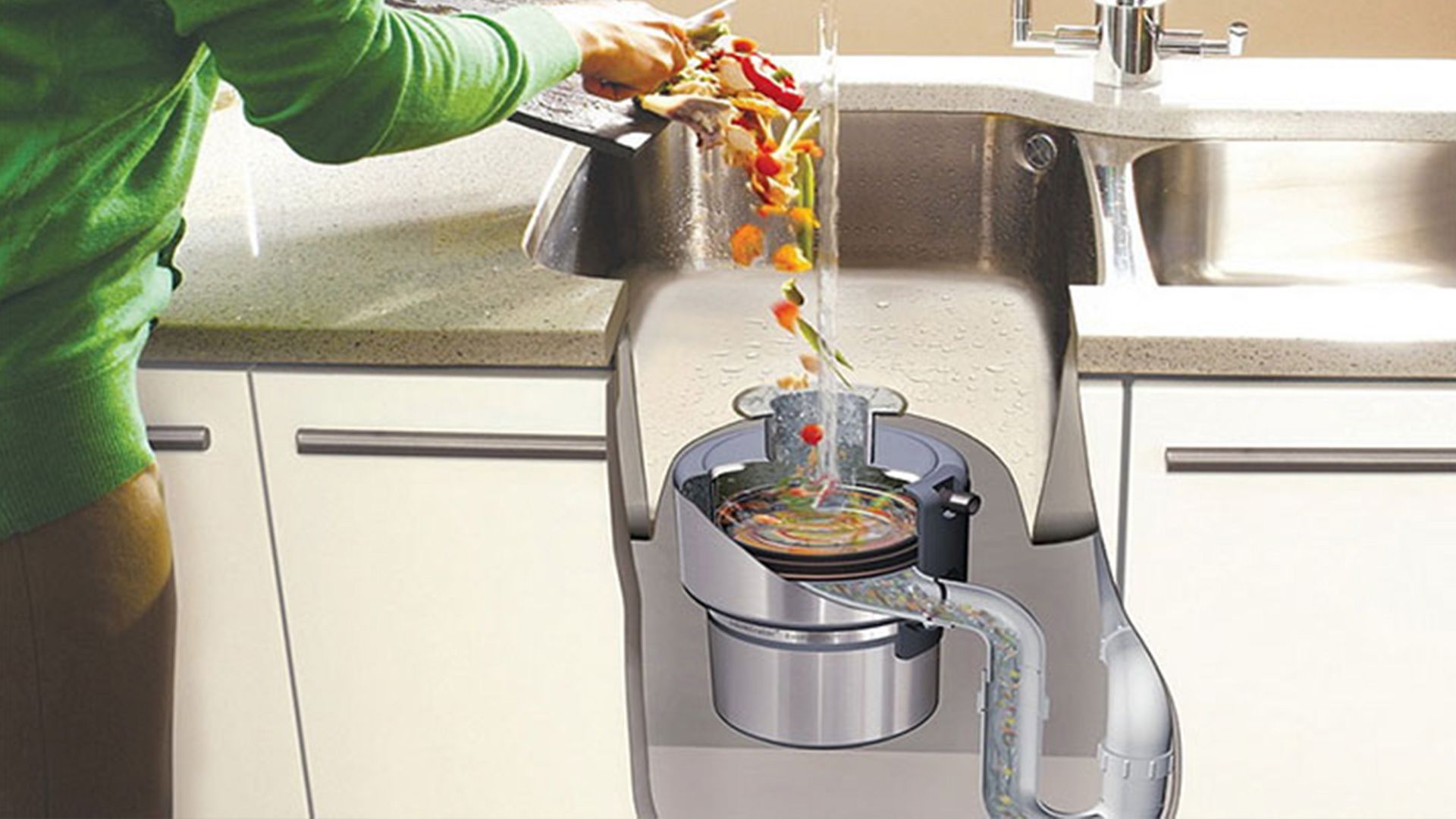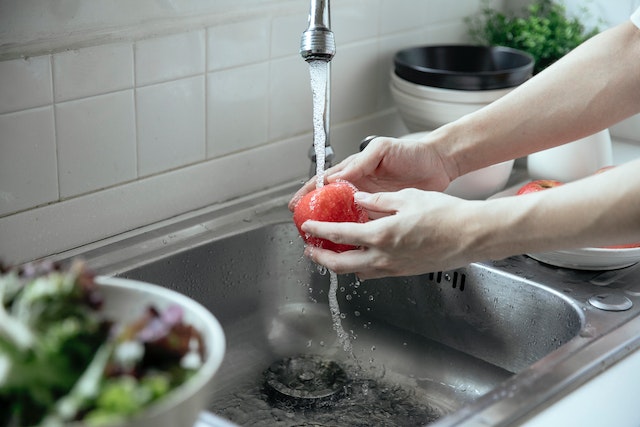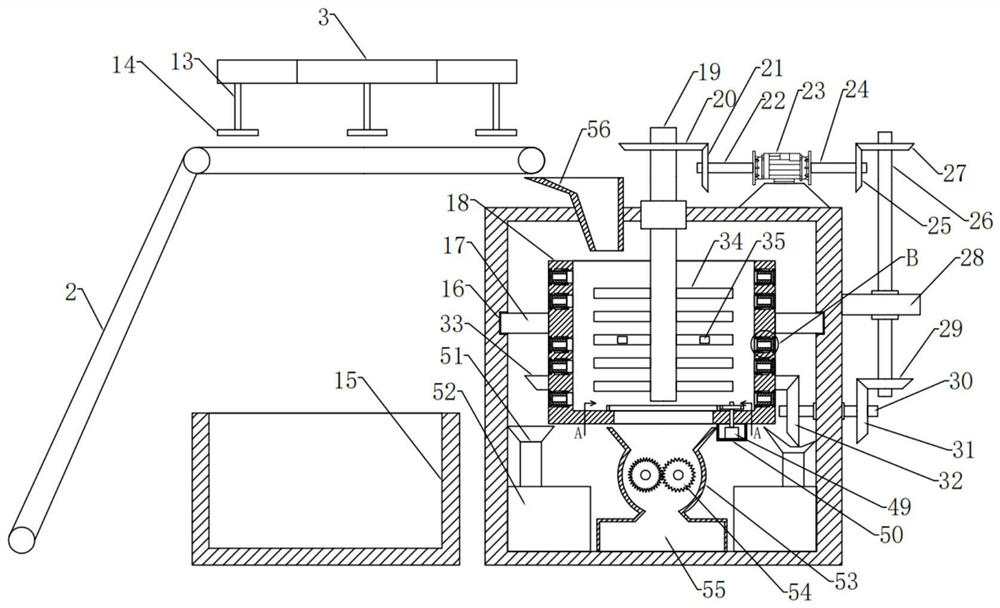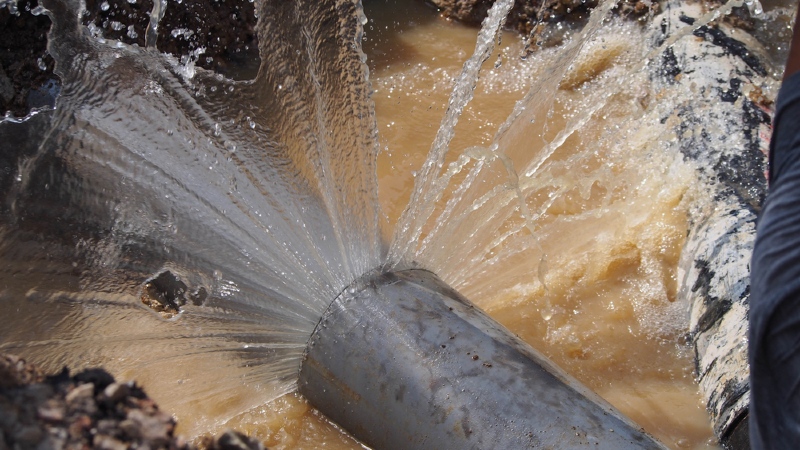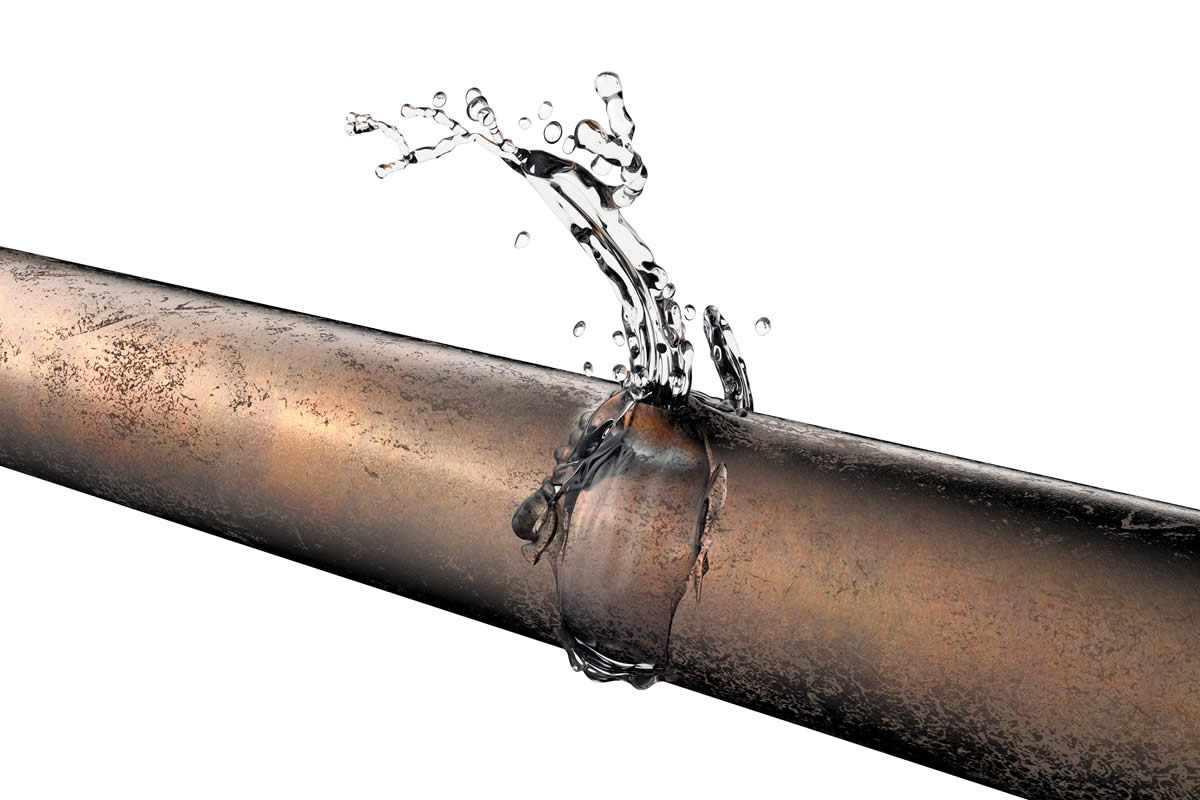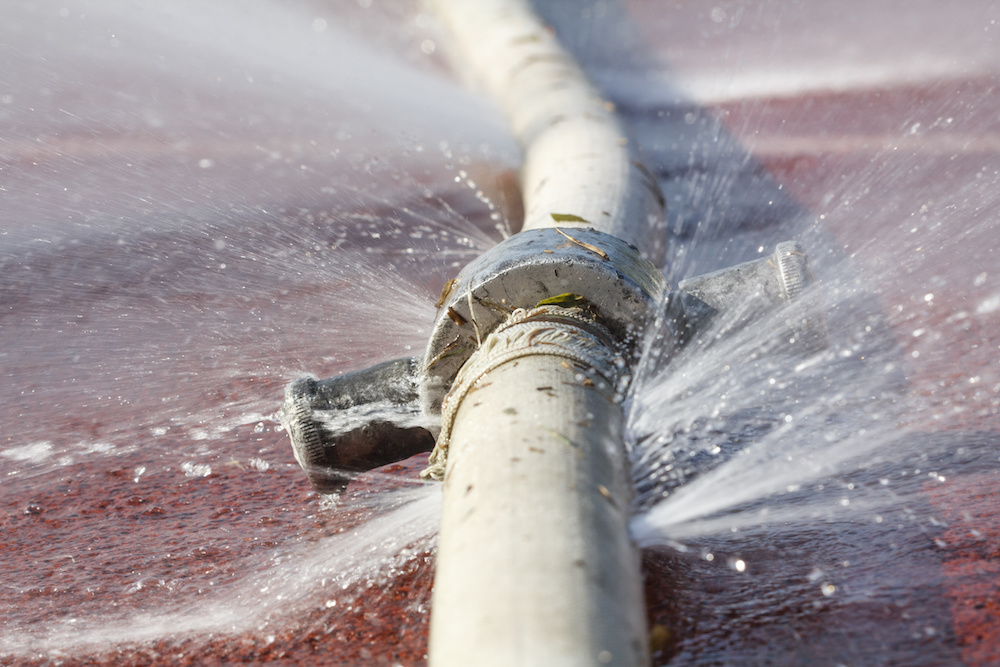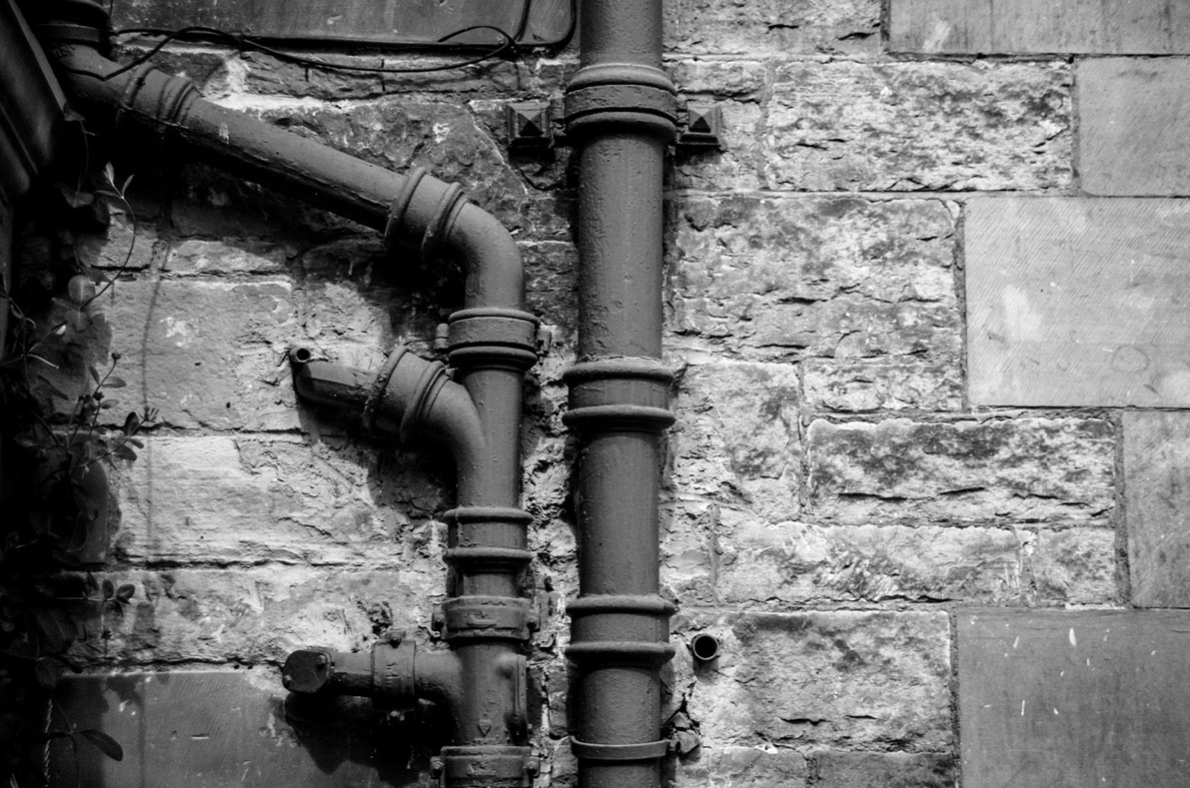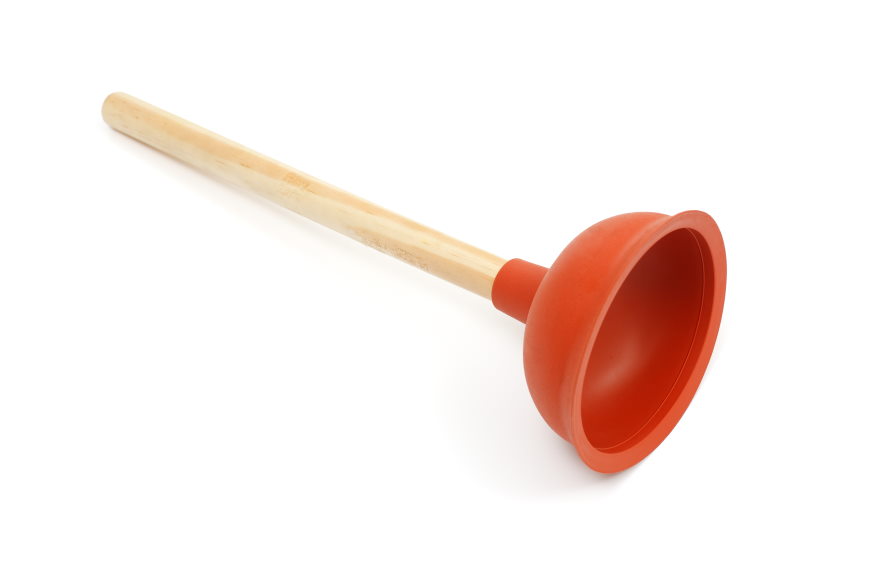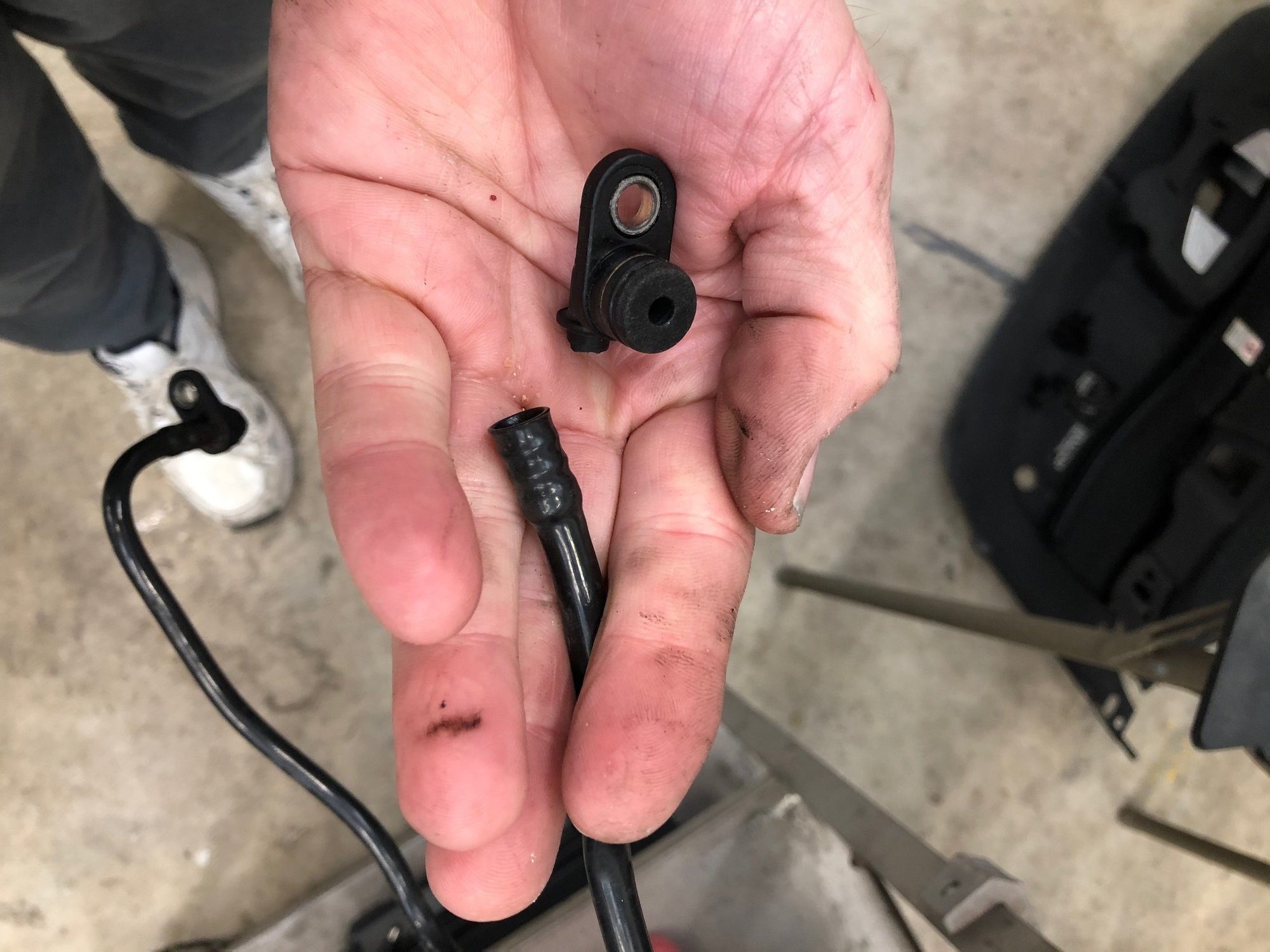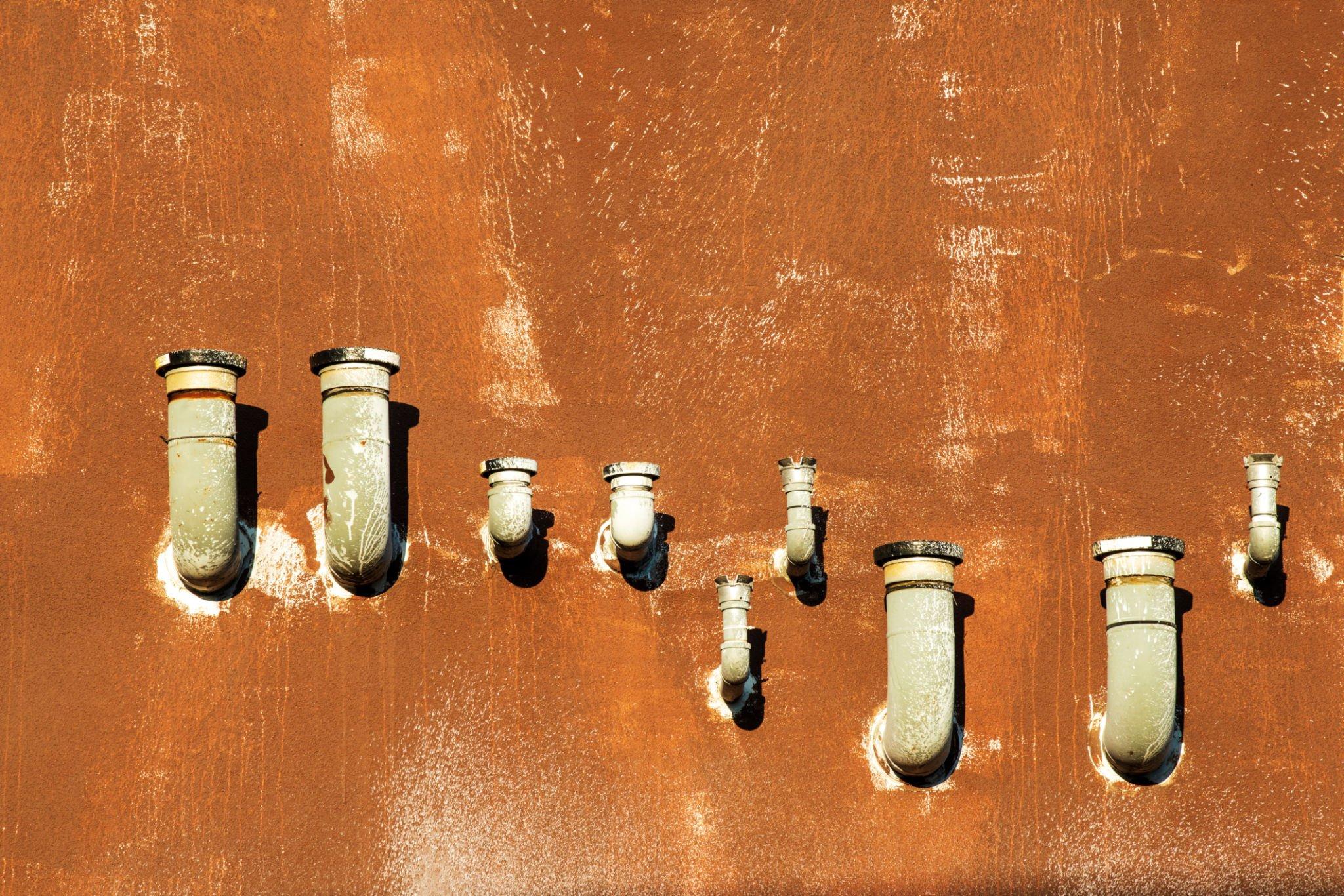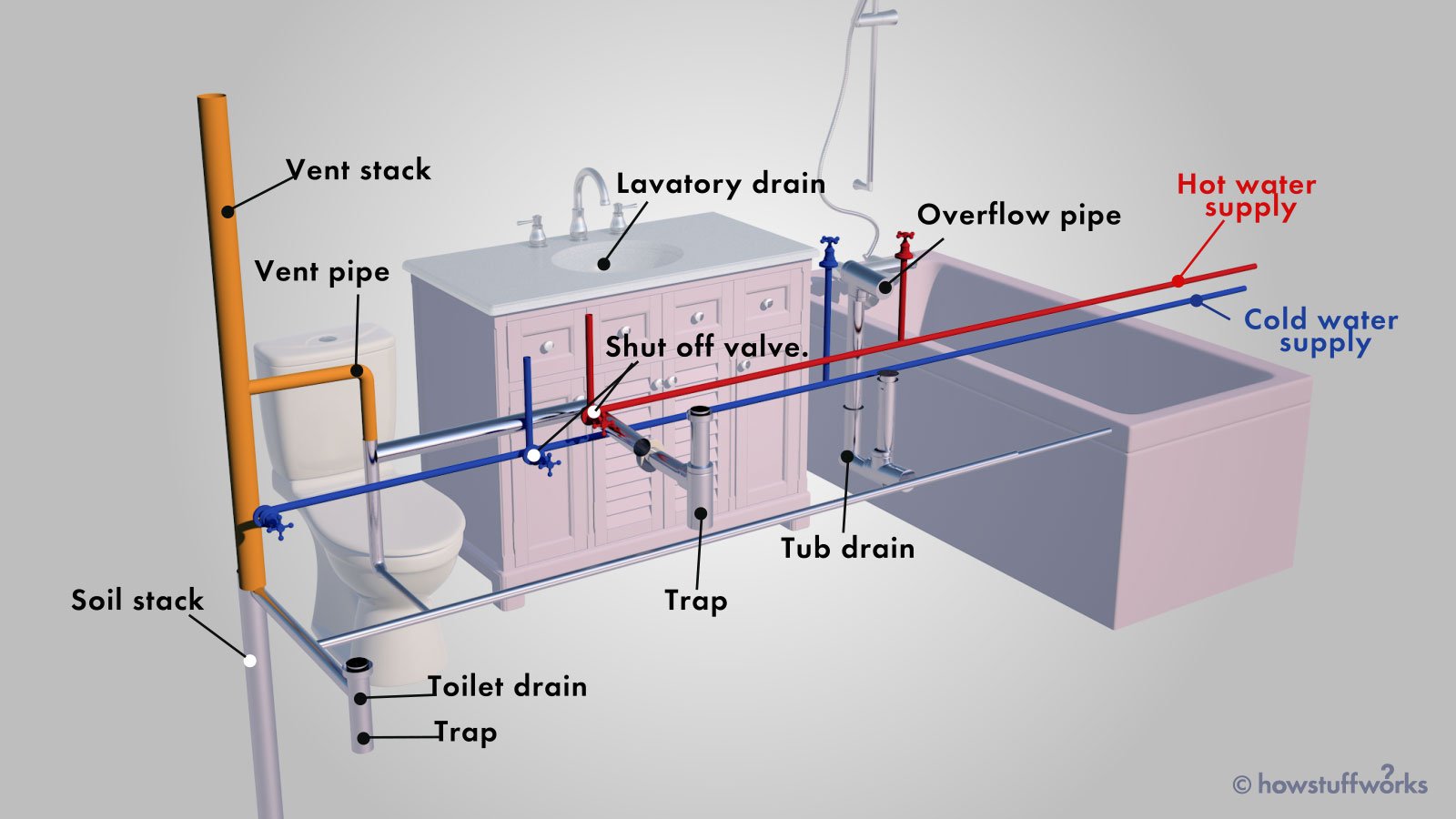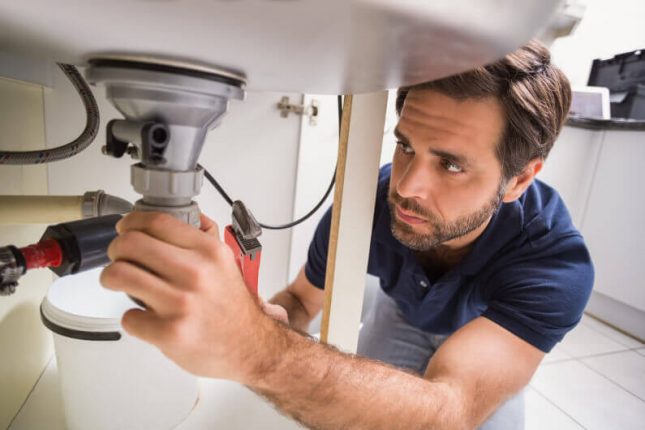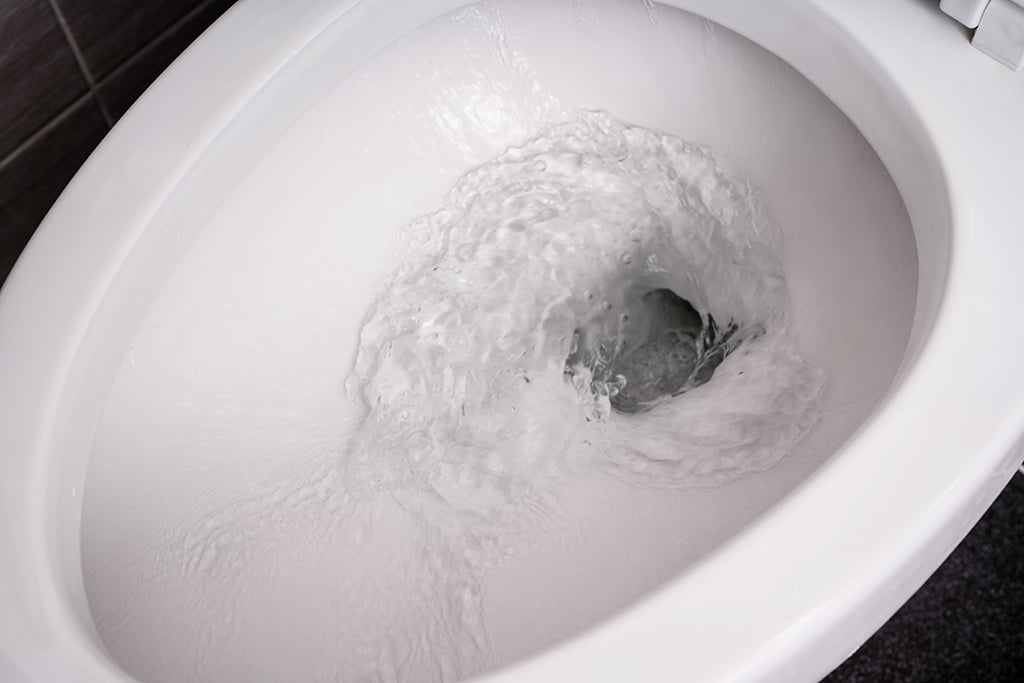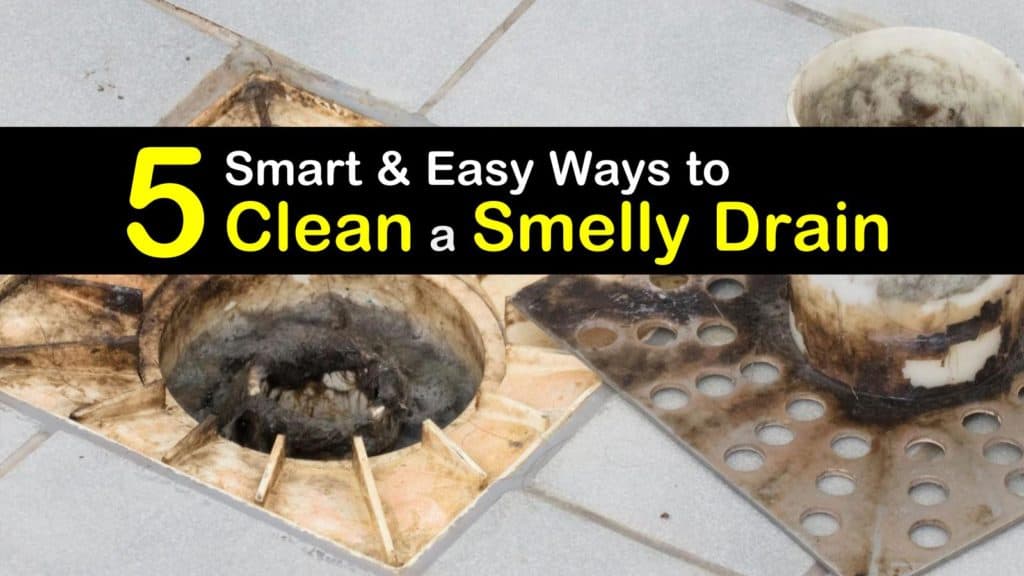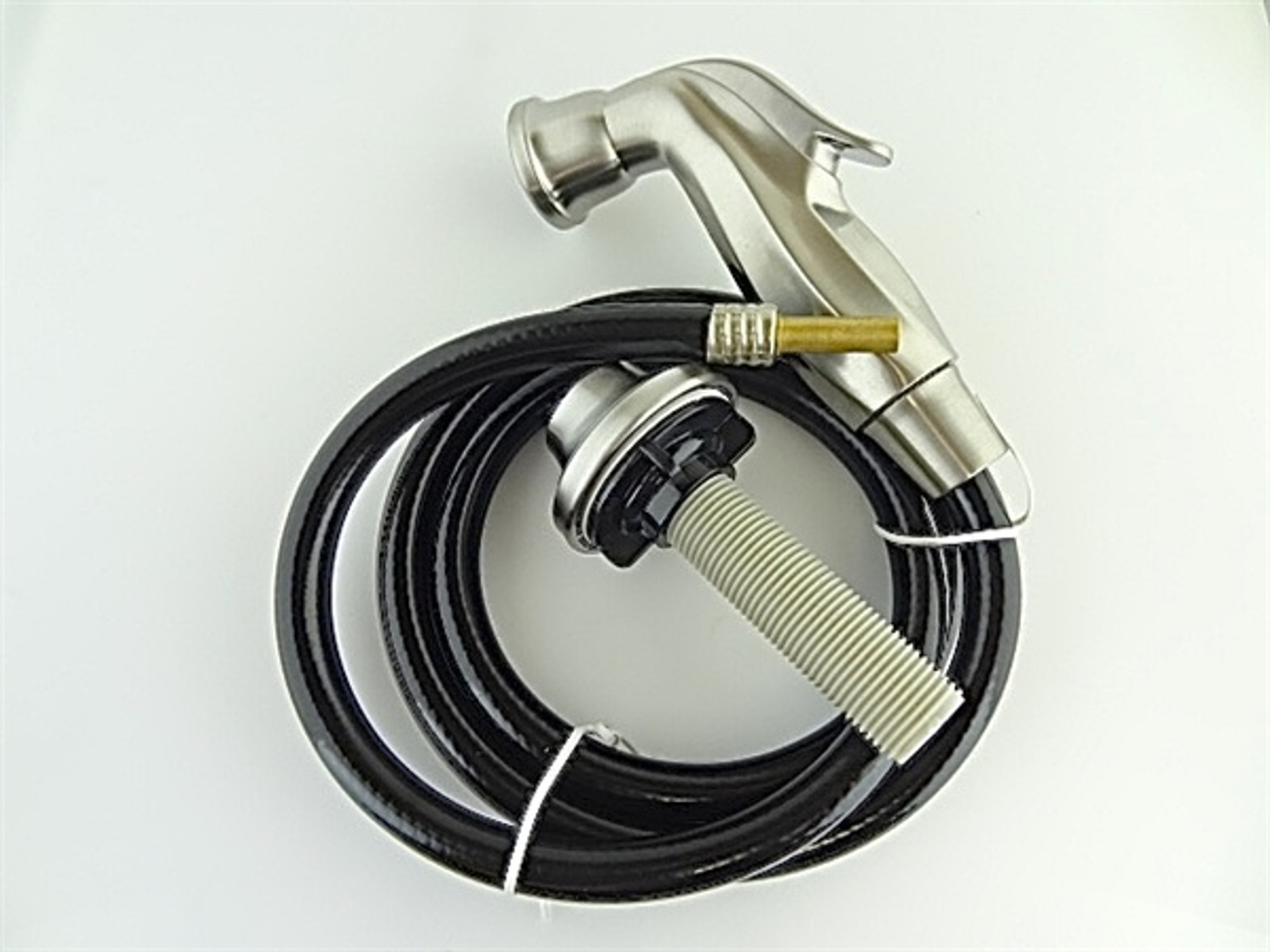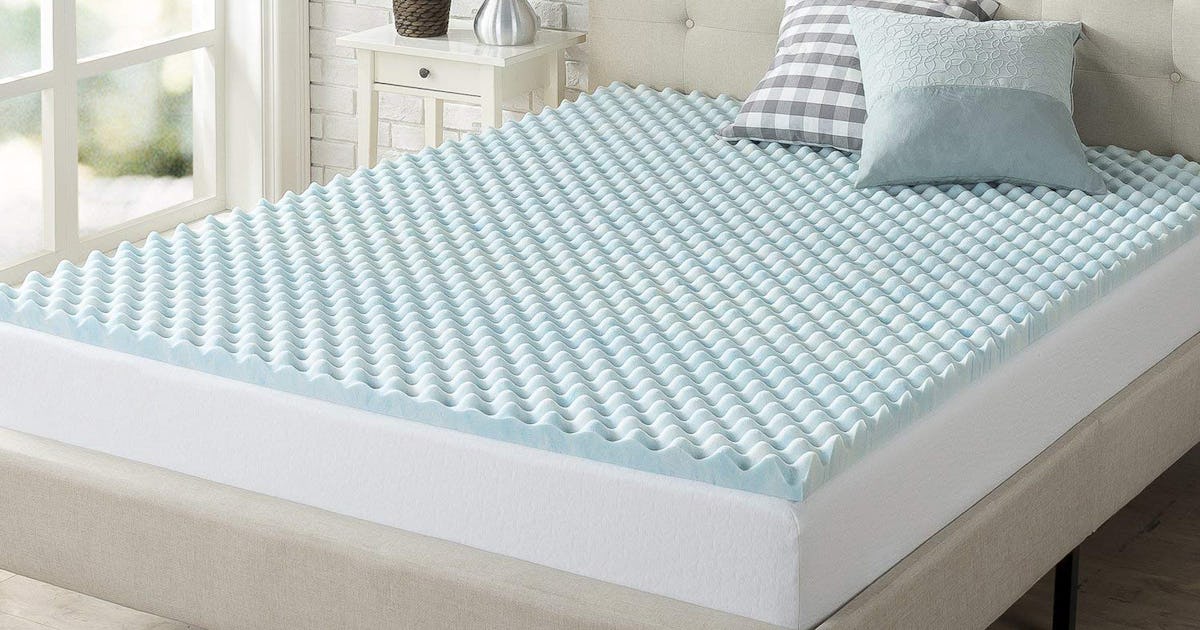If you're experiencing a strong, unpleasant rotten egg smell coming from your kitchen sink drain, the first step is to clean the drain thoroughly. This smell is often caused by built-up food particles, grease, and other debris that have accumulated in the drain over time. To clean the drain, start by removing any visible debris from the opening of the drain. Next, pour a mixture of hot water and dish soap down the drain and let it sit for a few minutes before rinsing it with more hot water. This should help to eliminate any lingering odors and leave your drain smelling fresh and clean.1. Clean the drain
If the smell persists even after cleaning the drain, the next step is to check for clogs. Clogs are a common cause of bad smells in kitchen sink drains, as they can trap food particles and other debris, causing them to rot and produce a foul odor. You can check for clogs by using a plunger or a drain snake to clear any blockages in the drain. If you're unable to remove the clog yourself, it's best to call a professional plumber to avoid causing any further damage to your pipes.2. Check for clogs
Another effective method for getting rid of a rotten egg smell in your kitchen sink drain is to use a combination of baking soda and vinegar. Start by pouring a cup of baking soda down the drain, followed by a cup of vinegar. Let the mixture sit for a few minutes before rinsing it with hot water. The chemical reaction between the baking soda and vinegar should help to break down any organic material that may be causing the smell.3. Use baking soda and vinegar
If the above methods don't work, you can also try using a commercial drain cleaner specifically designed for removing unpleasant odors. These cleaners contain powerful chemicals that can dissolve any built-up debris and eliminate the source of the smell. However, be sure to follow the instructions carefully and use caution when handling these products, as they can be harmful if not used properly.4. Try a commercial drain cleaner
If your kitchen sink is equipped with a garbage disposal, it's important to check it for any food particles or debris that may be causing the smell. To do this, turn off the disposal and use a flashlight to inspect the area. If you notice any buildup, turn on the disposal and run cold water to help flush it out. You can also use a mixture of ice cubes and lemon peels to freshen up the disposal and eliminate any lingering odors.5. Check the garbage disposal
In some cases, a rotten egg smell in your kitchen sink drain may be a sign of a broken or damaged pipe. If this is the case, you may notice other signs such as slow draining water or water backing up into the sink. If you suspect a broken pipe, it's best to call a plumber to inspect and repair the issue.6. Check for a broken or damaged pipe
If you're still struggling to get rid of the smell, you can try using a plunger to create pressure and force any built-up debris out of the drain. Simply place the plunger over the drain and push down and up repeatedly until the water starts to drain properly. This method can be effective for dislodging any stubborn clogs that may be causing the smell.7. Use a plunger
The vent pipe is an essential component of your kitchen sink drain system, as it helps to regulate air pressure and prevent unpleasant odors from building up. If the vent pipe becomes clogged or damaged, it can cause a variety of issues, including a rotten egg smell coming from your sink drain. If you suspect an issue with the vent pipe, it's best to call a professional plumber to repair or replace it.8. Check the vent pipe
If none of the above methods work, it may be time to call a licensed plumber to help diagnose and solve the issue. A professional plumber will have the necessary tools and expertise to identify the source of the smell and take the appropriate steps to eliminate it. This may include replacing damaged pipes, unclogging drains, or repairing the garbage disposal.9. Call a plumber
To prevent a rotten egg smell from returning in your kitchen sink drain, it's important to make a habit of regularly cleaning it. This will help to prevent the buildup of food particles, grease, and other debris that can cause unpleasant odors. You can use the methods mentioned above, such as using baking soda and vinegar, to keep your drain clean and fresh-smelling. In conclusion, a rotten egg smell coming from your kitchen sink drain can be a frustrating and unpleasant issue to deal with. However, by following these 10 steps, you can effectively eliminate the smell and keep your drain clean and odor-free. Remember to regularly clean your drain and address any clogs or issues as soon as they arise to prevent future smells from occurring.10. Prevent future smells by regularly cleaning the drain
How to Get Rid of the Rotten Egg Smell in Your Kitchen Sink Drain

The Culprit Behind the Smell
 If you've ever walked into your kitchen and been hit with a strong odor that resembles rotten eggs, chances are your kitchen sink drain is to blame. This unpleasant smell is not only off-putting but also a sign of potential plumbing issues. The most common cause of this smell is a build-up of food debris and grease in your drainage system, which creates the perfect environment for bacteria to thrive. The bacteria then produce hydrogen sulfide gas, which gives off the distinct rotten egg smell.
If you've ever walked into your kitchen and been hit with a strong odor that resembles rotten eggs, chances are your kitchen sink drain is to blame. This unpleasant smell is not only off-putting but also a sign of potential plumbing issues. The most common cause of this smell is a build-up of food debris and grease in your drainage system, which creates the perfect environment for bacteria to thrive. The bacteria then produce hydrogen sulfide gas, which gives off the distinct rotten egg smell.
Cleaning Your Drain
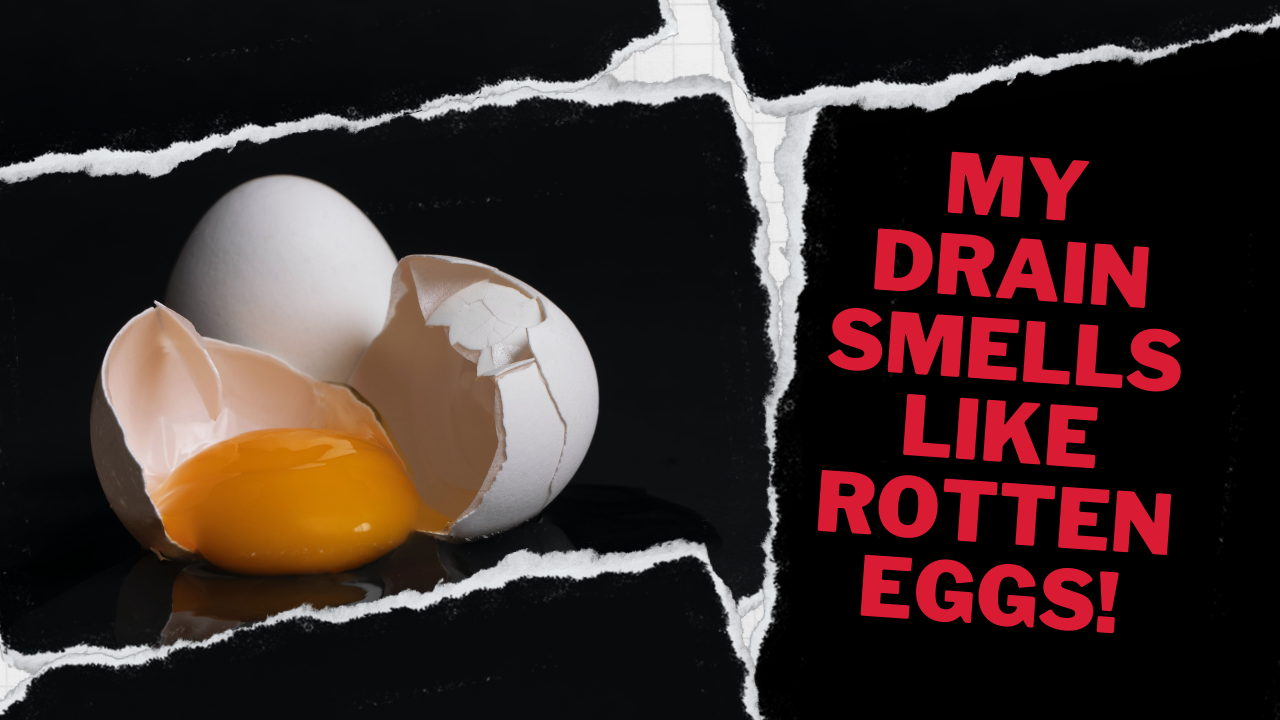 The first step in getting rid of the rotten egg smell in your kitchen sink drain is to thoroughly clean it. Start by removing any visible debris or food particles from the drain and use a plumbing snake to clear any clogs. Next, mix equal parts of baking soda and vinegar and pour it down the drain. Let it sit for about 15 minutes before flushing it out with hot water. This natural solution will help break down any build-up and eliminate the bacteria causing the smell.
The first step in getting rid of the rotten egg smell in your kitchen sink drain is to thoroughly clean it. Start by removing any visible debris or food particles from the drain and use a plumbing snake to clear any clogs. Next, mix equal parts of baking soda and vinegar and pour it down the drain. Let it sit for about 15 minutes before flushing it out with hot water. This natural solution will help break down any build-up and eliminate the bacteria causing the smell.
Preventing Future Smells
 To prevent the rotten egg smell from returning, it's crucial to maintain a clean and healthy drainage system. Make sure to regularly clean your sink and avoid pouring grease and food scraps down the drain. You can also use a bacteria-based drain cleaner once a month to keep the pipes clear and prevent any build-up. Additionally, consider installing a drain cover to catch any debris and prevent it from clogging your pipes.
To prevent the rotten egg smell from returning, it's crucial to maintain a clean and healthy drainage system. Make sure to regularly clean your sink and avoid pouring grease and food scraps down the drain. You can also use a bacteria-based drain cleaner once a month to keep the pipes clear and prevent any build-up. Additionally, consider installing a drain cover to catch any debris and prevent it from clogging your pipes.
When to Call a Professional
/three-glasses-of-water-containing-eggs-each-egg-at-different-level-in-the-glass-sink-or-float-egg-freshness-test-183743184-57829cf13df78c1e1f3e362b.jpg) If the smell persists even after cleaning and maintaining your drain, it may be a sign of a more significant plumbing issue. In this case, it's best to call a professional plumber to inspect your pipes and determine the cause of the smell. They can also provide a more thorough cleaning and offer solutions to prevent future smells.
If the smell persists even after cleaning and maintaining your drain, it may be a sign of a more significant plumbing issue. In this case, it's best to call a professional plumber to inspect your pipes and determine the cause of the smell. They can also provide a more thorough cleaning and offer solutions to prevent future smells.





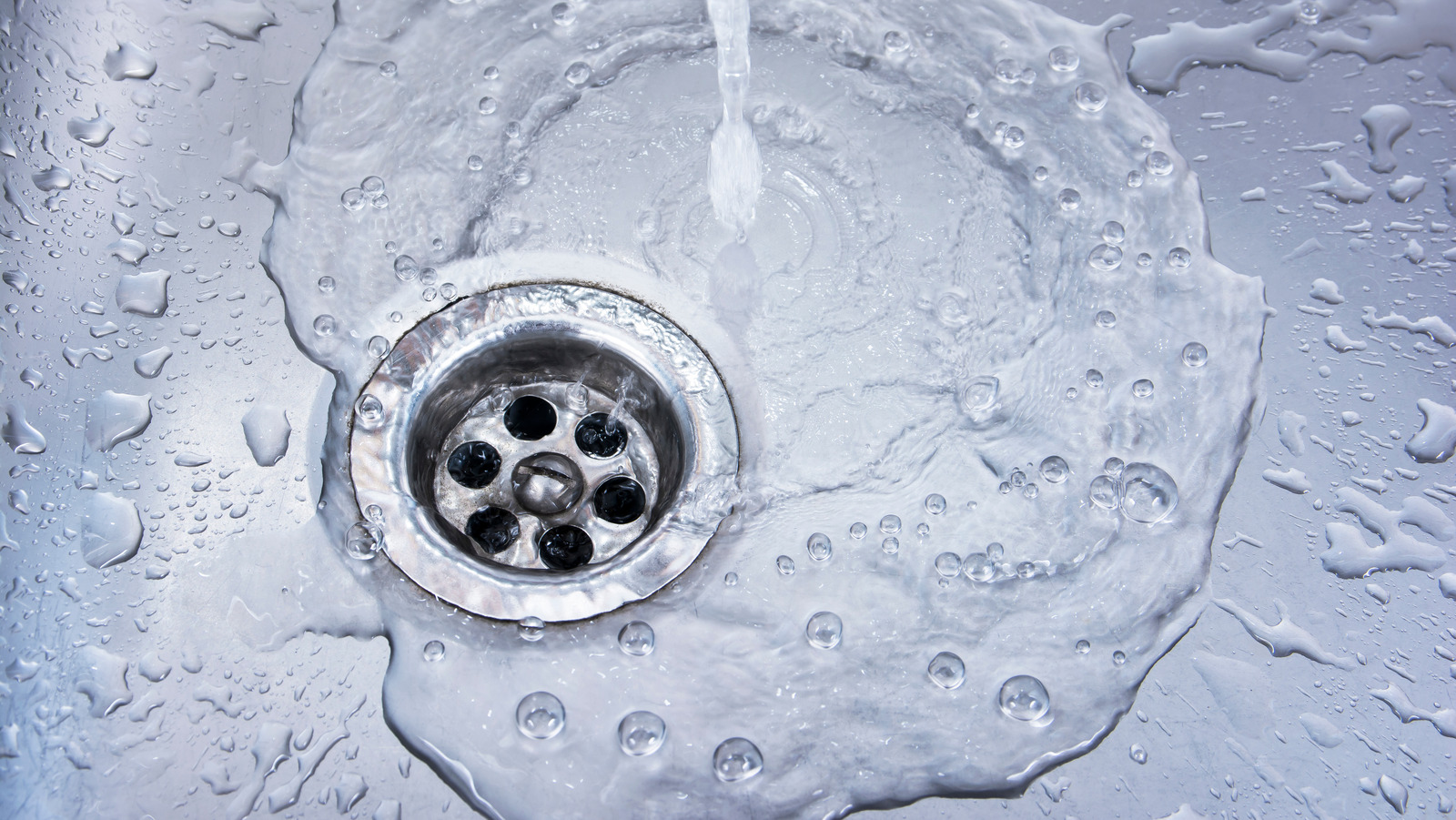


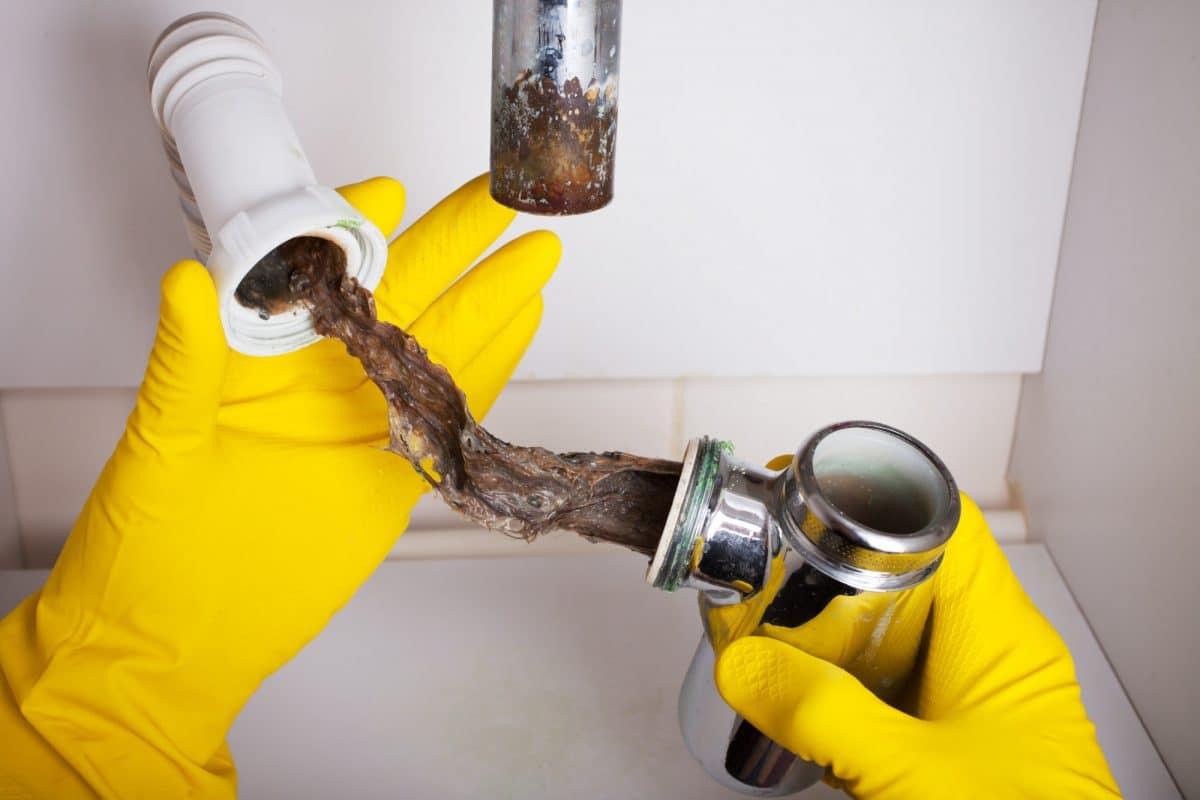
:max_bytes(150000):strip_icc()/installing-a-shower-drain-2718985-06-a352f423aef9405da0bbfc6552cd638e.jpg)


















